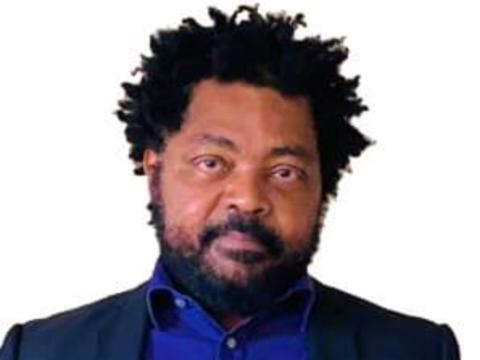By Chernor Alimamy Kamara
As Community Radio stations continue to face challenges in their operations, President of the Sierra Leone Association of Journalists (SLAJ), Ahmed Sahid Nasrala has called for more support to assist their functioning.
Signing Africell’s support for 50 Radio stations across Sierra Leone to commemorate World Radio Day in Freetown on the 13th February, 2024, Nasralla noted that in the context of the current economic situation, the Africell support to community Radio Stations was very timely.
He said community radio stations in particular, are faced with a lot of challenges, saying lack of financial sustainability means that many stations struggle to secure operations funding, procure the right equipment, pay staff salaries, and pay annual license fees.
He stated that lack of technical expertise and resources impedes the maintenance and upgrading of broadcasting equipment and that inadequate infrastructure and frequent power outages disrupt broadcasting schedules and affect signal quality.
He said with the proliferation of bigger and well-resourced media platforms, including digital and social media, radio stations face strong competition for audience attention and advertising revenue. He quoted the Independent Media Commission’s assertion that many community radio stations have been hijacked by individuals, mostly with political leanings.
The SLAJ boss pointed out that addressing the aforementioned challenges requires strategic collaborative efforts from stakeholders, including the government and its agencies, NGOs, donors, the private sector, and the communities themselves, to ensure the sustainability and effectiveness of community radio stations in Sierra Leone.
“This is imperative as the majority of the population depends on radio for information. In my recent community engagement in the Western Urban and Rural areas, under our ongoing National Democratic Institute (NDI)-funded project on combating disinformation, the majority of the people, including youth, say radio is their main source of getting information about governance and social issues,” he said.
He paid tribute to people who he said are part of the history of radio in the country that have inspired so many people throughout the 100 years since radio as a rediffusion service was introduced in Sierra Leone in 1934 which was the first in West Africa and the third in the continent following South Africa and Kenya, respectively. He also paid tribute to the role of radio during the war years in the country: Radio Democracy 98.1 in the restoration of democratic rule ; in democratic national elections, especially the Independent Radio Network; in national health emergencies such as Ebola and COVID-19, and in education and entertainment.
He called on everyone to reflect on the enduring significance of radio as a democratic tool, noting that with its widespread accessibility and inclusive nature, it serves as a powerful platform for democratic discourse and civic engagement. He also said that radio transcends socio-economic barriers, providing a voice to the voiceless and a platform for diverse perspectives.
Nasrala stated that in a world increasingly interconnected yet often divided, radio fosters dialogue, facilitates the exchange of ideas, and promotes informed citizenship. He added that it also empowers communities, enabling them to articulate their needs, challenge injustices, and participate actively in the democratic process.
He urged everyone to reaffirm their commitment to supporting and preserving this vital medium, ensuring it continues to be a beacon of democracy, fostering unity and understanding in society. He ended by appealing to everyone to ensure that the airwaves continue to resonate with diverse perspectives, empowering communities, enriching lives, and promoting peace and national cohesion.
World Radio Day is celebrated every year to highlight the pivotal role it plays in the lives of the voiceless.
Copyright © 2024 Politico (16/02/24)








